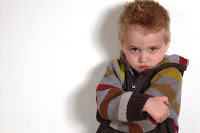

| Visitors Now: | |
| Total Visits: | |
| Total Stories: |

| Story Views | |
| Now: | |
| Last Hour: | |
| Last 24 Hours: | |
| Total: | |
Lying is common at age two, becomes the norm by three
They’re too young to need to fib about lipstick on their collar or even their unfinished homework but a new study finds the majority of three-year-olds are already practising liars. Deception in very young children has been documented before, but this is the first time it has been systematically tested in a laboratory.
Angela Evans and Kang Lee tested 65 two- and three-year-olds (28 girls) individually in a quiet room, part of which involved them being told not to peek at a toy. Despite this instruction, 80 per cent of the kids sneaked a peek. And when they were asked afterwards if they’d looked, around a quarter of two-year-olds lied about it, rising to 90 per cent of those aged over 43 months.
Although lying was rife among these young children, most of them weren’t very adept at it. When asked what the toy was, 76 per cent of the liars blurted out the answer, exposing their dishonesty.
The researchers also put the toddlers through a series of mental tests to see if any particular skills went hand-in-hand with lying. One of these was a kiddies’ version of the Stroop test that involved pointing to small pictures of fruits, while ignoring bigger versions. Like the adult Stroop, success at this task is thought to require a mix of inhibitory control and working memory. Evans and Lee found that the children who excelled at the kiddies’ Stroop were more likely to lie, which supports the idea that the development of lying depends on a mix of inhibitory ability and remembering the desired answer.
An important implication of this last point, the researchers said, is that the greater honesty of the younger children isn’t a mark of their moral purity, but simply a side-effect of their “fragile executive functioning skills.”
A weakness of the study is that it doesn’t look at different types of lies or tell us anything about the children’s motivation for lying.
_________________________________
![]()
Evans, A., and Lee, K. (2013). Emergence of Lying in Very Young Children. Developmental Psychology DOI: 10.1037/a0031409
Post written by Christian Jarrett (@psych_writer) for the BPS Research Digest.
The Research Digest is a free blog and email newsletter published by the British Psychological Society and written by Christian Jarrett. Also find us on Twitter and Facebook.
2013-02-21 02:02:45
Source: http://bps-research-digest.blogspot.com/2013/02/lying-is-common-at-age-two-becomes-norm.html
Source:



